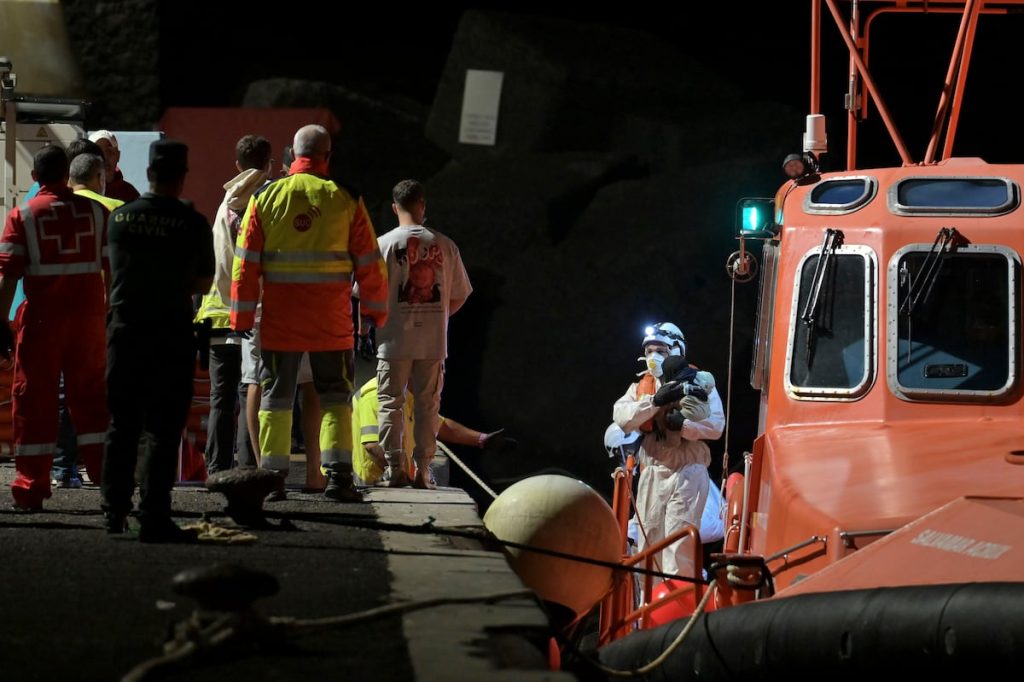The Canary Islands migration route is experiencing intense moments as the year comes to a close. So far, the Maritime Rescue teams have rescued a total of 184 people from five canoes in the vicinity of El Hierro. There is currently a search underway for a sixth boat in the sea. Unfortunately, one of the rescues ended tragically, with one man confirmed dead and four others in serious condition after being evacuated by helicopter to a hospital. In addition, three more men were also evacuated to the hospital during the night. Another tragic incident involved a boat with 80 people on board sinking off the coast of Morocco on its way to the Canary Islands, resulting in the loss of many lives.
The flow of canoes from West Africa to the Canary Islands has led to three particularly challenging days this week. Rescues and assistance operations have been ongoing, with almost 400 people rescued on one day alone. The day before Christmas, another 515 people arrived in the Canary Islands, with almost 200 more being rescued in the early hours of the morning, bringing the total number of migrants arriving in just over two days to nearly a thousand. The situation remains fluid, with more rescues and discoveries of boats at sea. The concerning increase in the number of casualties on the Canary Islands migration route has been highlighted in the latest report from the NGO Caminando Fronteras, which recorded a record number of deaths this year.
The death toll for migrants attempting to reach Spain via the Canary Islands is alarming, with over 10,000 deaths reported in 2024 according to Caminando Fronteras. The organization maintains direct contact with migrants and their families and reports that almost 10,000 of the deaths occurred on the treacherous journey to the Canary Islands, making it one of the deadliest migration routes in the world. Despite estimates from the International Organization for Migration suggesting a lower number of deaths, it is acknowledged that the true figures are likely higher.
In response to the escalating situation, the president of the Canary Islands, Fernando Clavijo, has written a letter to the new European Commissioner for Internal Affairs and Migration, Magnus Brunner, requesting prioritization of the archipelago in the allocation of funds for the implementation of the European Pact on Migration and Asylum. With over 45,000 migrants arriving in the Canary Islands this year, as well as the accommodation of over 5,400 unaccompanied minors, Clavijo emphasizes the urgent need for support and solidarity from the European Commission. He invites the Commissioner to visit the islands to gain a firsthand understanding of the challenges faced by the region as a front-line border area in the migration crisis.


